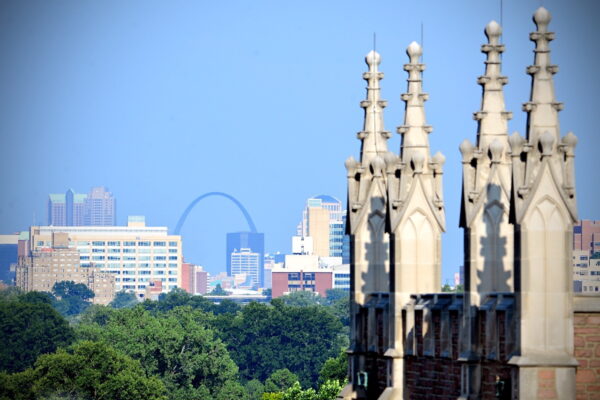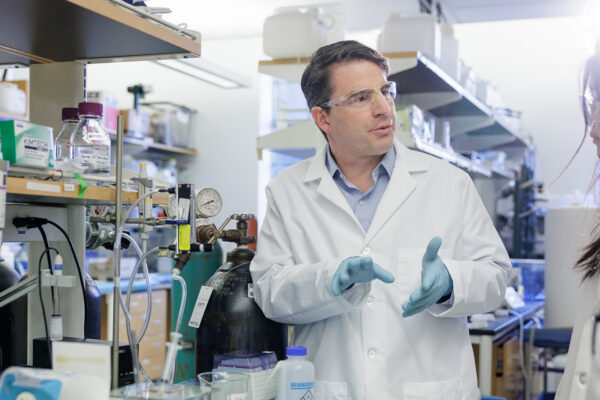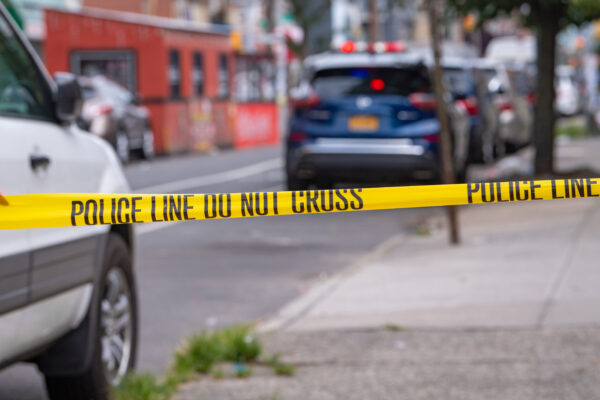In 2019, Washington University in St. Louis began collective work on 10 years of strategic activity. Thousands of faculty members, students, staff, trustees and alumni contributed their time, talents and insights, envisioning ways WashU could build upon its strengths while focusing on the future.
Fast forward to now: WashU is recognizing those successes while planning for the years ahead. Accomplishments include the launch of the first new school at WashU in 100 years, strengthened community-engaged research and teaching and interdisciplinary centers addressing the greatest challenges of our time.
“This is what can happen when a campus community comes together to plan, build and implement a vision of excellence,” Chancellor Andrew D. Martin said. “We said we would accomplish great things, and we have done just that, collaboratively, in a relatively short timeframe. I firmly believe our campus, region and world will ultimately be better thanks to this work. We should all be proud of this effort, and I thank everyone involved.”
New academic programs
The university has begun several incredibly important academic programs since the strategic plan’s launch.
“What WashU has accomplished from an academic standpoint is, in a word, remarkable,” said Mark D. West, provost and executive vice chancellor for academic affairs. “These academic entities were stood up quickly, but in an incredibly thoughtful, informed way. The collaborative work of this community is astounding and the momentum behind our academic mission is an important strategic move for the university.
Perhaps the most ambitious goal of WashU’s strategic plan was establishing the new School of Public Health, WashU’s first new school in a century. Sandro Galea, the Margaret C. Ryan Dean, the Eugene S. and Constance Kahn Distinguished Professor in Public Health and vice provost for interdisciplinary initiatives, started his appointment in January. Since then, myriad faculty and staff have joined the school — and students joined them this fall, a year earlier than planned. The school offers a master’s in public health, dual-degree options and a doctorate in public health sciences. And work to create a new, cutting-edge curriculum has begun. The school operates in two locations: one at 4300 Duncan in the Cortex Innovation District and another in Hillman Hall on the Danforth Campus. Public health faculty are driving forward a robust portfolio of externally funded research.
The School of Continuing & Professional Studies (CAPS) offers flexible, workforce-aligned programs for the modern learner, enabling individuals to balance career and personal commitments while pursuing their educational goals. CAPS leverages the prestige and resources of a world-class university to provide access to students across the region, a commitment that sets WashU apart. Programs are intentionally workforce-aligned, designed to simultaneously meet the unique needs of students and the demands of the regional job market. This strategic focus is critical to fostering significant economic mobility for graduates. Success is built on partnership: CAPS collaborates closely with industry leaders to develop and deliver innovative undergraduate, graduate and certificate curricula, ensuring that students gain the most relevant skills for immediate career impact and long-term professional growth.
The Center for the Environment serves as an interdisciplinary hub of environmental research taking place across WashU, with the aim of advancing transformative, collaborative solutions to address climate change, air pollution, access to clean water, food insecurity, biodiversity loss and infectious diseases. Since its launch in 2023, 123 scholars have joined the center, collectively publishing 150 journal articles about the environment. The center hosts events, assists scholars with grant proposals, and supports cross-school research and projects aimed at making the world safer and healthier. That includes Trusted Tap, funded by the National Science Foundation, which engages a variety of WashU and external partners and aims to use filters to quickly test a home’s water for contaminants.
The Confluence Collaborative for Community Engagement reflects WashU’s commitment to supporting community-engaged research, education and practice across the university. The collaborative supports faculty, community members and organizations in developing strong, sustained partnerships to address local critical needs. It holds events, provides training and support for community-engaged research and education and partnership development, and administers the William H. Danforth Confluence Award, a recognition and incentive for meaningful community research projects at WashU.
The Digital Intelligence & Innovation (DI2) Accelerator is building a community of best practice around digital innovation, including big data and artificial intelligence (AI). It also works to enhance research excellence, strengthen educational experiences and optimize university operations. Through DI2’s Digital Solutions Studio, researchers collaborate with software developers and data scientists to bring high-impact research projects to life. The accelerator partners closely with WashU Information Technology to help translate the university’s digital transformation strategy into practical, well-governed implementations.
Complementing the academic mission
The strategic plan also created two important non-academic programs, demonstrating WashU’s deep commitment to its campus community and the St. Louis region.
“Our academic pursuits are of tantamount importance,” Martin said. “So too are our charges to develop leaders of character across our campus and to build deeper engagements with the city in which we work and live. I’m proud of the work we’ve advanced through the strategic plan to address both opportunities.”
George and Carol Bauer Leaders Academy
At WashU, everyone has the capacity to lead, regardless of title or role. The George and Carol Bauer Leaders Academy provides many opportunities for students to develop and grow as leaders, including one-on-one coaching, courses, workshops and small cohort programs. During WashU Leadership Week, students, faculty and staff can participate in experiential activities and community-building events so all can explore and celebrate different forms of leadership.
‘In St. Louis, For St. Louis’ initiative
At his 2019 inauguration, Chancellor Martin shared his vision for deepening WashU’s relationship with and contributions to St. Louis. The creation of the “In St. Louis, For St. Louis” initiative brought that vision to life. Housed in the WashU Community Engagement Office at the Delmar Divine, the initiative’s team strengthens partnerships across the region by collaborating with local leaders and organizations to improve the quality of life for all who call St. Louis home. It serves as a “front door” to WashU, connecting local needs with university expertise and resources.
Beyond ‘Here and Next’
While an impressive number of programs, centers and initiatives have launched, the work is far from done. Each initiative that contributed to the success of the strategic plan will continue to advance WashU’s academic mission independently, without the “Here and Next” framework.
“It’s no secret we face challenging times and widespread pressures across higher education,” Martin said. “While there are many uncertainties, I believe in WashU’s strength as an institution and especially in its people. I am proud of what we’ve accomplished during the past six years and of what we will achieve next together.”
To learn more about the strategic plan’s accomplishments, visit the plan website.



